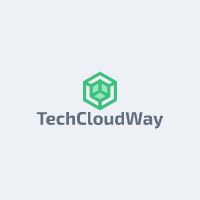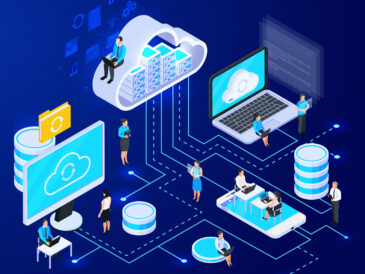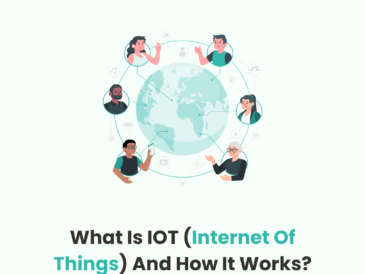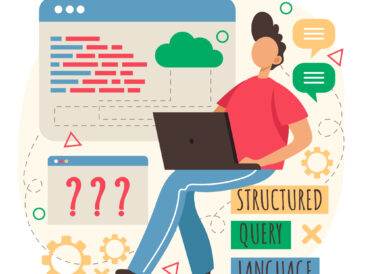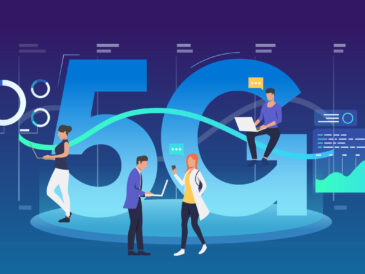Hello from the Internet of Things (IoT) world, where data is king. IoT has been around for a long and has been changing both our lives and industries. Therefore, it becomes vital to learn and be aware of it. But who will give you the information? Don’t worry! We are here to rescue. In this blog, we will explore IoT and how it works.
So, what are you waiting for? Join us as we take a deep dive into how IoT innovations are driving everyday life transformation!
What Is the Internet of Things?
The Internet of Things (IoT) connects physical objects to the internet by enabling data collection and real-time communication. This is a revolutionary technology that has the potential to transform industries by enhancing efficiency, productivity, and customer experience. Coined by Kevin Ashton, IoT refers to the interconnection of everyday objects to the internet, opening up a world of possibilities. Its applications span several domains, from smart home devices to industrial settings, reshaping daily life and streamlining business processes.
Utilising wireless technologies, IoT networks enable devices to communicate seamlessly without human intervention. With its vast scope, IoT has become a key strategy for enterprises, offering a wide range of products and services for consumers and industries. From security cameras with IP addresses to smart buildings and ubiquitous computing, IoT is reshaping how we interact with our surroundings and paving the way towards an interconnected and intelligent future.
The Impact of IoT on Various Industries
IoT has had a profound impact on various industries. In the consumer sector, it has revolutionised how we live, with smart home devices, wearable devices, and personal data analytics becoming ubiquitous. Organisations across sectors have leveraged IoT to streamline processes, improve operational costs, and enhance customer service. Industrial automation has also greatly benefited from IoT, optimising maintenance costs, energy consumption, and supply chain management.
In the healthcare industry, IoT has facilitated remote patient monitoring, smart devices, and data-driven healthcare solutions. Additionally, IoT solutions in smart cities have enhanced energy management, transportation systems, and urban planning. The Internet of Things (IoT) transforms industries and daily life by introducing real-time connectivity, increasing efficiency, and enabling new use cases and benefits.
The Evolution of The Internet of Things
The late 1990s saw the emergence of the Internet of Things idea, which signified the start of device access to the Internet. Innovations in sensors, data storage, and wireless networks have propelled the Internet of Things’ expansion and development. Big data analytics and machine learning have been made possible by these advancements, which have made it possible for IoT devices to gather enormous volumes of data. Scalability and real-time insights are made possible by cloud computing, which is essential for storing, processing, and analysing sensor data.
This has led to significant modifications in supply chain management techniques and business models due to the fourth industrial revolution driven by IoT. New use cases, like smart buildings, security cameras, and home appliances, have emerged as a result of the IoT’s smooth integration into a variety of industries.
Emerging Trends and Characteristics in IoT
Emerging trends and characteristics in IoT showcase the transformative power of this technology. Intelligent systems are made possible by IoT, where devices autonomously collect data, communicate, and make decisions. The physical world merges with the digital world as everyday objects become smart and interact with the internet. IoT platforms provide developers with the necessary tools, frameworks, and infrastructure to build and manage IoT applications.
A IoT devices are growing, with smart devices, industrial equipment, and sensors becoming commonplace. IoT networks are beset with security concerns, though, because there is a considerable possibility of data breaches, privacy violations, and cyberattacks. However, the potential advantages of IoT, like proactive decision-making, real-time data insights, and increased efficiency, make it a necessary tool for various fields and everyday life.
Let’s Talk About The Challenges and Criticisms
In the realm of the Internet of Things, protecting the security and privacy of data exchanged over IoT networks is a major concern. Robust security measures are required to safeguard sensitive data from unauthorised access in light of the multitude of networked devices that interact in real-time.
Additionally, managing the massive amounts of data IoT devices generate poses another challenge. The sheer volume of data can overwhelm traditional data management systems, requiring the adoption of advanced analytics and storage solutions.
Addressing the potential for cyberattacks on interconnected devices is a critical concern. As more devices connect, the risk of malicious actors exploiting vulnerabilities increases. Organisations must implement stringent security protocols and continuously update their systems to stay one step ahead of potential threats.
Dealing with integrating IoT devices into existing systems is another challenge. Many industries already have established infrastructure and processes, making it difficult to incorporate IoT technologies seamlessly. It requires careful planning, research, and investment to integrate IoT devices and maximise their benefits successfully.
Finally, fostering widespread adoption of IoT technologies requires overcoming resistance to change. Some individuals and organisations may be hesitant to embrace new technology or may lack the necessary skills and knowledge to leverage IoT effectively. Educating stakeholders, demonstrating the tangible benefits of IoT, and providing support and training are essential steps in encouraging widespread adoption.
Addressing Security and Privacy Concerns
To ensure the security and privacy of data transmitted over IoT networks, robust encryption measures should be implemented. Regularly updating and patching IoT devices is crucial to address any security vulnerabilities that may arise. Additionally, strictly controlling access to IoT networks helps prevent unauthorised use and potential breaches. Educating users about best practices for protecting their personal data on IoT devices is essential for ensuring their privacy.
Collaboration with industry stakeholders is vital in establishing security and privacy standards for IoT devices, promoting a unified approach to safeguarding data. By implementing these measures, the Internet of Things (IoT) can continue to thrive and transform industries and daily life, offering real-time insights and optimising various use cases across different sectors.
From industrial IoT to consumer IoT, the benefits of IoT are evident in enhancing efficiency, automation, and connectivity. As IoT continues to evolve, addressing security and privacy concerns remains a critical aspect of developing a robust IoT strategy and ensuring the protection of data in our increasingly interconnected world.
The Future of IoT: What to Expect?
The future of IoT holds exciting possibilities. With the increasing integration of artificial intelligence and machine learning, IoT devices will become smarter and more efficient. We can expect to see IoT applications expanding in smart cities, healthcare, and industrial settings. Energy management advancements will result in more energy-efficient devices. Wearable devices and smart home technology will enhance everyday life, while improved data analytics will lead to better insights and decision-making.
The Final Say
The Internet of Things (IoT) has established itself in our daily lives and is revolutionising global sectors. It is changing the way we live and work, from connected cars to smart homes. We anticipate seeing even more cutting-edge IoT solutions to improve our daily lives as technology develops.
But these developments also bring with them worries and difficulties. Ensuring the safe and ethical use of IoT requires addressing key challenges related to security and privacy. Furthermore, as IoT spreads, it is critical to consider how technology will affect sustainable development and how it might help create a more environmentally friendly future.
